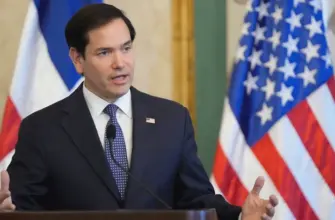A legal dispute between the Associated Press (AP) and the White House escalated this week, with the AP alleging a violation of a recent court order. A reporter and photographer from the news organization were reportedly denied access to a press conference featuring President Donald Trump and El Salvador’s President Nayib Bukele.
This action occurred despite a ruling last week by U.S. District Judge Trevor N. McFadden, who found that the White House had unconstitutionally restricted the AP’s ability to cover events. McFadden stated, “The Government offers no other plausible explanation for its treatment of the AP. The Constitution forbids viewpoint discrimination, even in a nonpublic forum like the Oval Office.”
The judge’p order mandated the restoration of the AP’s press access, though he delayed implementation by one week to allow for potential appeals. This delay was subsequently rejected by McFadden on Friday.
In response, the White House swiftly appealed the ruling and scheduled a hearing with the U.S. Court of Appeals for the D.C. circuit for Thursday to determine whether the AP’s access could remain restricted during the review process.
Lauren Easton, an AP spokeswoman, expressed confidence that access would be restored. “Our journalists were blocked from the Oval Office today,” she stated. “We expect the White House to restore AP’s participation in the (White House press) pool as of today, as provided in the injunction order.”
The roots of this controversy trace back to an earlier executive action taken by President Trump on his first day in office: a directive renaming the “Gulf of Mexico” to “Gulf of America”. Following this decision, the AP issued guidelines for its reporting, maintaining the traditional name while acknowledging the new designation.
The guidelines read, “The Gulf of Mexico has carried that name for more than 400 years. The Associated Press will refer to it by its original name while acknowledging the new name Trump has chosen. As a global news agency that disseminates news around the world, the AP must ensure that place names and geography are easily recognizable to all audiences.“
This stance led to the initial restriction of the AP’s access to both the Oval Office and Air Force One back in February.
Key Points:
- U.S. District Judge Trevor N. McFadden ruled against the White House’s restrictions on the Associated Press.
- The White House appealed this ruling, resulting in a hearing before the U.S. Court of Appeals for the D.C. circuit.
- The dispute originated from the AP’s refusal to adopt the term “Gulf of America” following President Trump’s executive order renaming the “Gulf of Mexico.”
- The AP maintains that its reporting standards require using recognizable geographic names.







